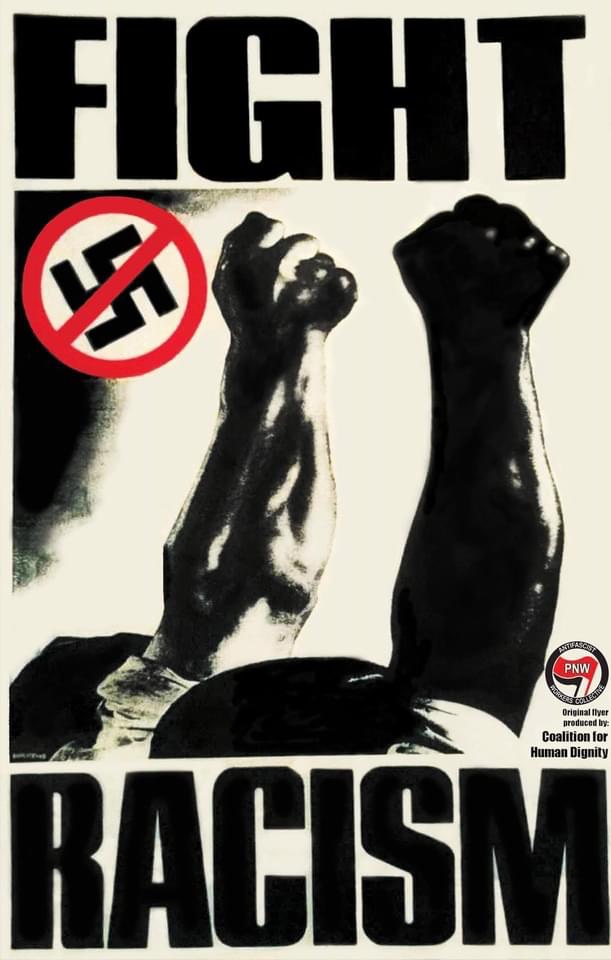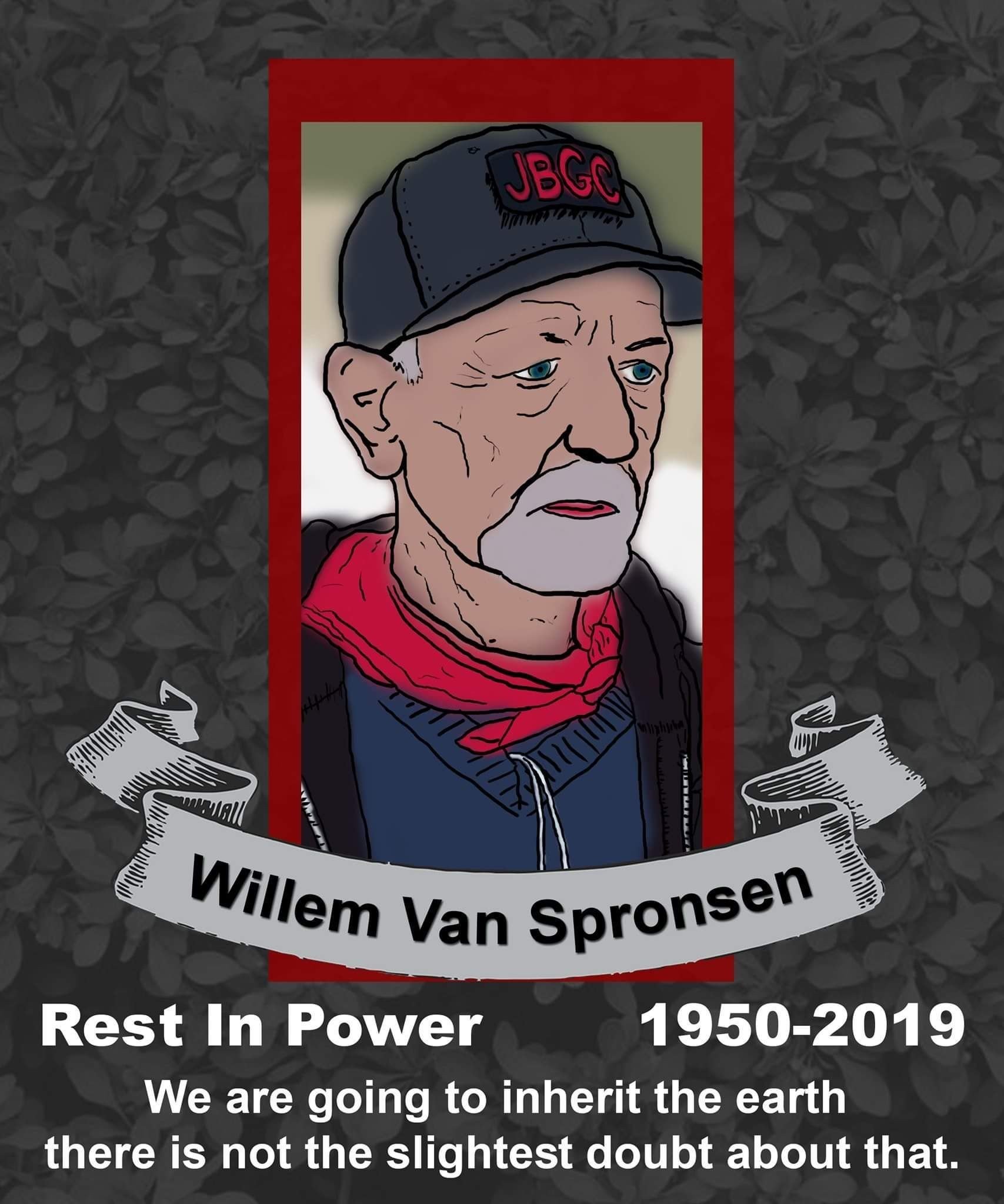Introduction
This is a deliberately splenetic critique of an Intercept Podcast hosted by Glenn Greenwald that aired on June 25, 2020, entitled “Should the Populist Left Work With the Populist Right Where They Have Common Ground or Shun Them?” Along with Greenwald as a not-so-disinterested-host, the podcast features Krystal Ball and Nathan Robinson. Since 2018 Ball has promoted a left-right “populist” convergence through the television show Rising, which she co-hosts with right-winger Saagar Enjeti. The two debate topical fare “Crossfire” style (arch-paleoconservative Pat Buchanan was an original “Crossfire” host in the 1980s, a noteworthy historical reference here). Ball and Enjeti also co-authored The Populist’s Guide to 2020: A New Right and New Left Are Rising, released in February 2020. Robinson is the editor-in-chief of the socialist magazine Current Affairs, arguably the most unfortunately named socialist magazine in the history of socialist magazines, but a socialist magazine nonetheless. He wears funny outfits but is an articulate reform-minded socialist.
This debate was ostensibly prompted by Robinson’s article in Current Affairs “Isn’t Right-Wing Populism Just Fascism?” but has been ongoing ever since Greenwald first appeared on Tucker Carlson Tonight a few years ago. Given Carlson’s growing status as a more authentic neo-fascist alternative to Trump, it’s of no small importance that we try and understand how efforts to engage with him are utter folly. I think both Greenwald and Ball argue for what amounts to a ‘pink-brown’ alliance, a potentially disastrous response to the ongoing collapse of the center in American politics. Robinson’s critique of Greenwald and Ball is largely correct, although because he upholds much of the language and theoretical framework of “populism” rather than discarding it altogether, his response is somewhat misguided. I think there is an alternative to all three of these pundits, but it can only be conceptualized by challenging the basis from which Greenwald and Ball base their politics. Robinson doesn’t quite do this; hence the need for this essay.
To Robinson’s question “Isn’t right-wing populism just fascism?” the short answer is: Fascism is fascism; populism isn’t anything at all (at least not in 2020). That means the short answer to Greenwald’s question “Should we work with or shun them?” should be: We should crush them.
But I’m fond of long answers.
Glenn Greenwald is a litigation attorney; his worldview is steeped in laws, constitutionalism, and abstract theories of rights. This bourgeois legalism can provide powerful critiques of the political economy of capitalism, but too often in America it is also blind in the white eye. For instance, Greenwald the activist helped found and lead The Intercept, an important investigative journalism project. But, Greenwald the attorney has also represented in court neo-Nazis such as Mathew Hale. Anti-fascists understandably have a problem with this. Greenwald thinks such professional conduct is a testament to his fidelity to equal access under the law. We think it’s collaboration. This contradiction is not unique to Greenwald, it is the case with all celebrity intellectuals, entertainers, and liberal idealists. On principle we should figuratively hammer those who would sacrifice lives on an altar of abstract rights.
Greenwald is also preternaturally clever. If one accepts his premises (sometimes unstated) it’s difficult to argue his conclusions. Therefore, we need to challenge the foundation of his framework to show why the coalition-building he and Ball are proposing involves a disastrous politics of the pink and brown.
It’s important to note that “pink” here means blue-dog, liberal or social Democrat, not LGBTQ+. “Brown” means far-right, white nationalist, and fascist. Red is far-left (not Republican) and denotes revolutionary socialist, communist, and anarchist politics. With me? The dangerous overlap here is not “red-brown” but “pink-brown”; between disaffected (white) Democrats, and far-rightists. In terms of historical precedence think George Wallace or Reagan Democrats. Greenwald and Ball want to break out the beer and bratwurst and discuss “legitimate grievances”; I want to destroy their organizations, from the top down, and thereby their capacity to organize, even function. By doing so we can also make space for a good many of their rank and file to become anti-racists, anti-fascists, even raging leftists.
Part of what Greenwald will not accept is that many radical conservatives have moved into a more revolutionary camp and prefer an eliminationist form of actually existing capitalism. Such a radical turn means that when they inveigle against “elites” or “foreign wars” they are not reinvigorating “populist” democracy or helping constrain American imperialism. This is not an opportunity for cross-class coalition building, nor is it a component of a “popular front” against fascism. It is one important aspect of a burgeoning 21st-century fascism in formation. It must be fought, not finagled.
Greenwald’s TINA (There Is No Alternative)
Greenwald introduces the podcast exchange as follows:
“For me, the starting point has to be the current state of left-wing populism. I don’t think that it can be reasonably disputed that left-wing politics in the United States does not claim a majority of people which support it. By which I don’t mean that left-wing populism has no views which garner the support of a majority of people. Left-wing populism does have key views, such as medicare for all and raising the minimum wage and even to some extent universal healthcare that garner substantial support among the entire U.S. population if not a majority which means it has broad appeal beyond its left-wing precepts. But, left-wing populism as a movement, as an ideology, as a philosophy, does not claim anywhere close to a majority–nowhere near a majority among people in the United States claim to be leftists or left-wing populists…That means in order for it to implement its policy goals–which has to be the ultimate objective of politics, otherwise, politics is like art or poetry, something one does for the art of it, or the purity of it, or the self-enjoyment of it, but not actually to change the world for the better in meaningful ways through legislation and reform. If that is the goal (which it has to be) it means that left-wing populists have to form coalitions and alliances with other people in order to form majorities. And the question becomes, in those numerous instances where left-wing populists can’t form a majority with democratic corporatists and democratic imperialists and democratic centrists–and oftentimes they can’t, which is why there is such a cleavage…the fact that there are so many instances where there is no way to form a coalition or a majority with democratic centrists because they oppose the agenda of left-wing populism prompts the question: With whom are left-wing populists going to form coalitions and alliances on an issue-by-issue basis–not permanently, not for every issue, but on an issue-by-issue basis where there is common ground, if there is a prohibition, as Robinson argues there should be, in that article at least, where he said: “the left should have nothing to do with that movement?” With whom is the left-wing going to form alliances and coalitions if not right-wing populism?”
This is a clever, but fatuous, elevation of congressional politics at the expense of other forms of political struggle. Social movements like Black Lives Matter are expected to reach their apex of development when politicians are all in Kente cloths; anarchist mutual aid networks, worker militancy, housing occupations, teacher and health care worker strikes, and much more are completely ignored here. Nothing exists outside “serious politics.” Greenwald is trying to defend a sweeping claim about how power functions in a capitalist society by reducing that power to a very narrow expression of it: legislation in the congress between donkeys and elephants. Furthermore, the American political spectrum is notoriously tilted to the right, at least in part because there has never been a labor party here; just two capitalist parties. That’s a long-term, built-in, structural disadvantage to working-class, multi-racial, movements that must be overcome. We can overcome it, but not through elections. Social movements often drive and move beyond electoral politics, as is now the case with the uprising following the murder of George Floyd. Greenwald and Ball seem to think the best response to cops murdering Black people is making tactical alliances with Rand Paul and Josh Hawley.
So Greenwald’s first premise is that electoral politics is the only form of politics; everything else is just art or self-expression. Notice also that throughout this debate so-called ‘left-wing populists’ are limited to two choices: pacts with corporate democrats or those with right-wing populists.
Anti-fascists refuse both options.
My central argument is that one cannot practice what Greenwald and Ball are proposing and expect to defeat fascism and build an alternative to capitalism. Of course, if one’s goal is majority control of both chambers of Congress, then none of this applies. If you accept his premise here, it’s hard to reject his conclusion. Don’t accept the premise. Greenwald and Ball inhabit a thought world with self-limiting horizons. Our politics are excluded from their world of “There Is No Alternative”; what is hardly ever acknowledged is that this engenders a built-in preference for and susceptibility to the siren songs of the far-right. When the center of what is acceptable debate between the two capitalist parties has moved so far to the right that it includes fascist ideas, the solution is not to accommodate such ideas, but to reject them. Fascist ideas have moved from the margins to the mainstream of that electoral consensus precisely because the “dead center” of liberalism and conservatism is bereft of solutions to today’s crises. They fear the Black-led uprising more than they do fascism.
One of the strongest arguments to be made against cooperating with the far-right is this: forging alliances with them — tactical or otherwise — precludes movement building that is genuinely multi-racial, working-class, and that promotes left-unity. The far-right is so steeped in eliminationist and accelerationist politics as to make the tactical alliances Greenwald and Ball so cherish a fool’s errand. To court allies among fascists is to court disaster for people in their crosshairs.
Elsewhere in the podcast, Greenwald poses a hypothetical union member who believes in workers over management, medicare for all, raising the minimum wage, and is against free trade agreements because of offshoring. On the other hand, this worker is also a social conservative — pro-life, not LGBTQ positive, and favors restrictive immigration policy. Are they to be shunned? Greenwald doesn’t mention anti-Black racism, police brutality, or the carceral state in his convenient equation. He doesn’t mention this hypothetical (white) worker’s support for “law and order” expressed through “Back The Blue” bumper stickers. I think the omission is instructive. This podcast aired on June 25, 2020, while protests were still ongoing (as they are now) across the United States. While statues to confederate generals and colonialist masters were being hauled down throughout the country, Greenwald and Ball persisted with their fantasy of building a multi-racial, working-class movement without confronting racism and white supremacy while one was underway all around them. Instead of turning to that movement, they mistook a phantom constituency for a new “agent of history.”
Greenwald’s Exemplar of Right-Wing Populism
But Greenwald isn’t just talking about breaking bread with regular white workers; he’s got something very particular in mind when he uses the term ‘right-wing populist’:
“For this discussion to be profitable we need to have an understanding of what right-wing populism is…To me, the most vivid and comprehensive expression of right-wing populism in the United States is the rhetoric and the branding of the 2016 Trump campaign. Not the reality of the Trump presidency, which deviated radically and abruptly from what the rhetoric and branding of what the campaign was, but the campaign itself. What did the campaign in 2016 say that it stood for, particularly when engineered by Steve Bannon in order to attract enough voters, particularly in the industrial Midwest, in order to win the election…?”
What it stood for then, as now, is “America First”: a reinvigorated racist nationalism that is the core of a 21st-century fascism-in-formation. Greenwald argues that Trump “deviated radically and abruptly” from Bannon’s authentic populist program. This amounts to a distinction without a difference. Here, both the thing he is trying to measure and evaluate together with the ruler and criteria which he uses to measure it, are both flawed. Bannon and his ilk engineered Trump’s campaign from largely the same template Trump is now governing, setting aside the wild card of the global impact of COVID-19. In other words, there has been no substantive break between promises and results that don’t always occur when either capitalist party secures the executive. Far more important is the continuity that persisted from campaign to governing regime: building the wall and ICE raids, vicious anti-Black racism, organized misogyny, hyper-nationalism, more advanced forms of kleptocracy and cronyism, together with an iron-fisted fidelity to the economic imperatives of Wall Street, Silicon Valley, and corporate America. Even if one were to hold that there is a meaningful difference between Bannon’s “populism” and that of Trump, the proposition that the former offers viable terrain for cooperation is reprehensible.
There should be no need for a quote here from Bannon to demonstrate his moorings in the white nationalist, alt-right political universe.
The question becomes, what are Greenwald and Ball up to?
Greenwald’s Pink-Brown Alliance
Many leftists are accustomed to hearing about “red-brown” alliances, the most dreadful example captured in the slogan “After Hitler, Our Turn,” popularized by the Stalinized communist left in 1930s Germany. There was, of course, no “turn” for the left “after Hitler” because the left, then everyone else, was obliterated, literally; this being perhaps the single most important lesson learned for what happens after fascism attains state power. That slogan flowed from the equally disastrous Stalinist slogans of “socialism in one country” and “social fascism,” the former a betrayal of proletarian internationalism and the latter a refusal to distinguish between routine capitalist rule and that of a fascist dictatorship. Today there are numerous examples of some radical leftists adopting a political framework that involves much overlap with far-right and even neo-fascist movements. One has only to look at the degenerated publication of the U.S. Socialist Worker’s Party organ The Militant, or the bizarre syncretic monstrosities like Spiked Magazine and Russian “National Bolsheviks” to see such overlap. When anti-racism and anti-fascism are discarded as central principles that should guide revolutionary praxis, such alliances become possible. The term ”campist” comes to mind here, a largely anarchist critique of socialists and communists who allow their political praxis to be overly influenced by states, many of which are not on the left (e.g., Russia, Syria). Geopolitical priorities become over-determined by conflicts with the United States; “anti-imperialism” devolves into a reflexive “anti-Americanism” itself enmeshed within the priorities of those reactionary states, where they risk becoming nothing but a creature of them. Max Blumenthal and The Greyzone come to mind here. This political tendency on the left is real and needs to be countered, but what we are addressing here is different.
Together with vigilance against such developments, we need to be equally aware of “pink-brown” alliances. After all, it was the German Social Democratic Party (SPD) that carried out the assassinations of Rosa Luxemburg and Karl Leibnicht in 1919. From then on the leadership of Germany’s largest worker’s party would periodically forge its own alliances with right-wing reaction which also contributed to a failure of the left to unite against Nazism. The leadership of the social democrats considered there to be no appreciable difference between Nazis and communists, a political stupidity that was epitomized in posters from the Iron Front that featured three arrows targeting the Conservative Franz von Papen, NSDAP leader Adolph Hitler and Ernst Thälmann, leader of the German Communist Party (KPD). The Iron Front was demobilized by the SPD leadership in the run-up to the Nazi ascension to power while at the same time the communists considered there to be no appreciable difference between social democrats and Nazis. Any front against Nazism — popular, united, or otherwise — became impossible.
Today’s purveyors of the “populism” thesis for understanding political power have learned nothing from history. Their attempts to forge an impossible unity between fascists and social democrats will only demobilize constituencies that cannot possibly benefit from such a project.
Greenwald thinks there is a realignment underway within the American body politic that has permanently rejiggered the familiar right-left spectrum. This realignment now pits “populists” of the right and left against the “establishment” or “insiders” of the center. Such claims are not new. They are, in fact, stock and trade of the far-right. While Greenwald doesn’t argue that all politics is now “populists” vs. “elites”, he does argue that many things can be grasped through this lens and that now is the time for leftists to forge alliances with what amount to fascists on the right. He’s wrong.
The Dead Center
For all his radicalism, Greenwald is committed to liberal, constitutional, democracy as he understands it. The problem he faces, and it is the same for everyone in the “dead center,” is that the ground underneath him is shifting, although not in the ways he thinks. Greenwald outlines what he thinks has changed in American politics over the past few years and how his political analysis accounts for that change:
“What all of this illustrates to me is that while there are some political debates that are still best understood by Republican vs. Democrat, or left vs. right — things like social issues, reproductive rights, and LGBTQ rights, crucial political issues to be sure–and more substantive policies such as the environment and climate where there are still differences (meaningful ones) that are understood best by the division between Republican vs. Democrat, there are numerous issues where the establishment wings of the Democrat and Republican parties have more in common with one another than they do with the populist wings of either party; where left-wing populists have more in common with right-wing populists than they do with what has long appeared to be their closer allies in each party. And what this illustrates is that while some politics is still best understood and Republican vs. Democrat, much of it is not. Much of it is better understood as pro-establishment vs. anti-establishment, insider vs. outsider.”
Here Greenwald doesn’t use a race-class-gender framework to guide his analysis of political struggle, and it shows. This leaves him susceptible to pitchfork and torch rightists like Tucker Carlson. The American far-right has always framed their politics as “anti-establishment” and “outsider vs insider” but there should be an unbridgeable gulf between what they mean and what we mean by those terms. Greenwald thinks otherwise.
“… Is it the case that the views of right-wing populists on immigration, on race, and on other issues that are so pernicious and odious and anathema to left-wing populists that working with them ought to be morally impermissible? If that is the case, the question becomes: Number one, how is the left-wing ever going to implement its agenda or even attract converts if it refuses to engage constructively with [them and instead] scream at them and call them Nazis and fascists and racists but actually engage with them and try and find common ground? And it leads to the [second] question: Why is it that the pernicious views of the populist right render them off-limits for engaging with them in any kind of constructive or issue by issue alliances or coalition but that the hideous and horrendous views of the corporatist and imperialist democrats doing regime change wars in other countries, serving the interests of Wall Street and Silicon Valley at the expense of workers–why are those hideous views that so many Democrats have [not off limits]?”
No. 1: These “populist” Republicans Greenwald is so enamored with are pockmarked by pathological fetishes for private property, racism, and fascism. If it waddles like a pig, oinks like a pig, and roots like a pig, it is probably a pig. Stop calling it a duck.
No. 2 The left will never implement its agenda through congress. We fight for a revolution, not a bill.
No. 3. Both fascists and capitalists are our mortal enemies. Greenwald is trying to render what is a structural deformation of the American political system into a moral failure practiced by progressives: a double standard for which he offers the opposite as a solution. The corporate Democrats are worse! It’s lesser evilism in reverse. But Greenwald knows the Democratic Party is a capitalist party and therefore prefers to make alliances with the business class. Only someone who doesn’t understand this would be vexed by the altogether routine and inflexible pro-corporate policies and legislation favored by Democratic party elites. Congressional politics is generally limited to disagreements among capitalists that are structured to exclude arguments put forward by movements that challenge this. See: Sanders Campaign for president 2016, 2020. The only question is why someone would continue to try and make a “dirty break” with the Democratic Party so as to smuggle in democratic socialism. That will have to wait for another time.
It is also important to point out that what Greenwald calls “right-wing populism” is really an American hybrid of libertarianism and Christian nationalism. It is the worship of private property and the Cross wrapped up in the American flag. These two ideologies constitute the most important pipelines that convey raw political material to a more toxic refinery called 21st Century fascism. The most dynamic center of gravity for this emerging fascism is precisely what Greenwald thinks is “right-wing populism”. It is right-wing, but it is in no sense an expression of “the people.” For example, Peter Thiel is by no stretch of the imagination a “populist”; he’s a powerful tech billionaire inspired by ubermensch, dark enlightenment elitism. He believes capitalism and democracy are antithetical, and that the former should vanquish the latter. Yet Thiel is an important, even central, figure within the “populist” firmament. If that’s the case, then how can one argue for tactical alliances with that political tendency? So too with Rand Paul, the Senator who has repeatedly opposed anti-lynching legislation. Paul is a tea party libertarian — a crypto-fascist by any other name. Wouldn’t such an alliance be predicated on a rupture with other constituencies (immigrants, Black people, undocumented workers) because their very existence is at stake? Yes, it would.
Greenwald always uses the term “populism” in ways to favorably contrast it with “establishment” centrism. What he won’t acknowledge is that the term has its roots, and not a small amount of limbs and branches, within Cold War sociology and political science and the singular contention that all politics can be understood as an eternal contest between democracy, on the one hand, and totalitarianism, on the other. This political tradition argues that democracy is fundamentally compatible with capitalism; fascism, anarchism, and communism are not. There is no anti-capitalist option according to these precepts, only a defense of liberal democracy (capitalist democracy) through a never-ending war against “extremism.” A major problem with that framework is that by excluding left options to capitalism, the “anti-totalitarians” will often turn to right-wing authoritarians or outright fascists to solve the recurring problems that capitalism generates. They routinely sacrifice democracy and equality in favor of private property and inequality. While Jeanne Kirkpatrick articulated this best from the conservative right as a distinction between “totalitarian regimes” vs. “authoritarian regimes” and a marked preference for the latter, most Democrats sing the same song, if in a different key. When Greenwald argues that right and left “populists” need to work together he’s arguing against that long political tradition of corporate centrism, but in favor of alliances with fascism. His break with centrist orthodoxy, with the iron-clad hold of the two all-but indistinguishable parties run by and for the ruling class, is to appease the far-right in the interests of strengthening the liberal center. His alternative to the domination of the two capitalist parties is to empower the most reactionary, noxious elements of one in the hopes of stabilizing the ship of state. It won’t work and besides, we want to sink it.
“Populism” here is a term used by centrists as a cudgel against “extremists” of any political stripe. The term has no claim whatsoever to any analytical legitimacy and wherever one observes its use, be wary. There was, of course, a “populist movement” during the late 19th Century, but it has little if anything to do with either contemporary scholars who use the term as a weapon in defense of capitalist democracy, and even less with that vast cornucopia of political groups that have adopted it worldwide. The seminal text on the term is by Marco D’Eramo, in New Left Review (July-August 2013, No. 82) “Populism and the New Oligarchy.”
The Pitchfork and Torch Crowd
In discussing Tucker Carlson, Greenwald makes the laughable claim that it is often only Carlson who is willing to attack corporate Democrats. Greenwald plays an excerpt of a Carlson show where he rails against “banking” and “foreign wars,” “the private equity model” and “a ruling class”. This Greenwald believes to be a “questioning the fundamentals of capitalism” one can’t find elsewhere. But white nationalists and Christian Patriots would agree with these descriptions of ruling class power; they just believe such power is Jewish and arrayed against white people. Greenwald is too smart to be unaware of this fact; therefore he just dismisses it. He doesn’t think it’s relevant. But it is. His appearances on Carlson’s show are loathsome. Greenwald deliberately misrepresents Carlson’s “populism” by white-washing it; downplaying or disregarding altogether the vicious anti-Black racism that is a core value of all white nationalists. Greenwald also describes Carlson as an important voice against “regime change” in Syria, Iran and Venezuela. He apparently regards Carlson as an anti-imperialist, a complete denigration of the term Lenin developed a century ago. Of course all of this debate about American power abroad amounts to nothing more than counterposing the boots on the ground option vs. the Qassem Suleimani option; it is an argument among capitalists about how best to exercise that power abroad, not dismantle it. What Carlson articulates flows from the perceived interests of the one unit of analysis that for him rises above all else: the (white) nation. Carlson is best understood within this political tradition, and as such his brand of politics is beyond the pale because it implies the jettisoning of any meaningful antiracist praxis.
Robinson correctly points out that both Greenwald and Ball exaggerate areas of agreement between “populisms” to suit their argument, noting that in actuality such overlap is virtually non-existent. Greenwald, ever the attorney, then tries to pigeon-hold Robinson into supporting “cooperation on principle.” Robinson responds that on principle, yes, there can be cooperation; but it doesn’t matter because they are “on principle” too radically different. Our principles don’t overlap enough with theirs to justify cooperation. Rand Paul, Robinson correctly asserts, is not a “populist” but a “tea party libertarian”.
I find it remarkable that at this juncture of the podcast there is only mention of Black Lives Matter in relation to right-wing calls to invoke the Insurrection Act to crush the rebellion. Libertarians might well signal opposition to the state using the military to quell dissent, only to prefer cops, III Percent militias, and Oath Keepers do it instead. The three podcast presenters here evince no real apprehension of what is happening on the streets; they seem disconnected from the powerful protests underway and the attendant reinterpretations of social reality that go with them. This powerful multi-racial, poor and working class social movement is a threat to both traditional capitalist political control (liberal and conservative) as well as far-right alternatives to that consensus. A pink-brown alliance would serve to short-circuit our most advanced revolutionary forces and assist the capitalist state as it faces what could be a genuine existential crisis.
Greenwald gives Trump’s anti-NAFTA and anti-WTO political stances both too much and too little weight. He ascribes far too much importance for these policy stances as somehow “pro-union” or “pro-worker” and not near enough to the core constituencies Trump seeks to mobilize through them: white workers (Steel workers, cops, prison guards, etc.) For example, with prison and cop unions, Trump is not trying to gut them; he counts on them for support. Trump’s pro-union bonafides always run through his anti-Black racism, which is as a central a precept within his worldview. When we are crying for defunding and abolition, he is doubling down on Back the Blue. Our problem is with the existence of those unions and their role in anti-Black racism and generalized repression. Those white workers are not “duped” into supporting Trump, he is fighting for their real interests as they understand them. We have to dismantle those interests, not find ways to accommodate them. It will do us no good to deny agency to right-wingers; they know who butters their bread.
Greenwald cites Missouri Senator Josh Hawley as someone ‘genuinely’ committed to challenging corporate power. This hagiography of Hawley is only possible by stripping his right-wing, libertarian, Christian worldview from the individual legislation that he does or doesn’t support and ignoring the pipeline to fascism within which it all flows. Greenwald is intent on distinguishing between authentic and ersatz populists, then between right-wing populism and (classical) fascism. Robinson chimes in on the distortion of Rand Paul:
“Wait. If Rand Paul is a part of this…[then] the whole premise that…right-wing populism is a kind of combination of left economics and social conservatism just falls apart completely, because Rand Paul is a radical free market libertarian.” In other words there is no “economic populism” to work with there. As usual, one needs to add that he’s a fucking racist.
Greenwald believes that this “right-wing populism” represents a “serious ideological rift” within the Republican Party and conservatism in general and that this division can be capitalized on. Robinson thinks it is politics as usual — both are wrong. There is a rift within the Republican Party between corporate conservatives and a growing fascist wing. That divide can be capitalized on by attacking both and developing our movement but no element should be opportunistically engaged with. At least not without dire consequences for a revolutionary movement of the left.
Krystal Ball’s contribution to the debate revolves around more distinctions without differences: between leaders and a base, racists and non-racists, left economics and right culture. Ball states she is in favor of a multi-racial, working class coalition and is a social democrat. I take her at her word, and therein lies the problem.
Ball argues that too many Democrats are influenced by neo-liberalism and “identity” politics and hold up “representation” alone to keep their coalition active. The policies and legislation they support do not offer substantive change. For corporate and imperialist Democrats it is most important to keep the multi-racial working class in line following the dictates of Wall street and Silicon Valley. You will get no argument from me here, either.
Likewise her description of Trump deliberately fanning “white racial anxiety” as a continuation of the Southern Strategy from the Nixon years, geared toward keeping large segments of the white working class in the GOP tent where it does the bidding of their corporate masters, is also spot on.
It is in her prescription for addressing that division where we find the same intractable problem as that of Greenwald. How do we get them together? They ask. Why the fuck is that even a question? I respond. I don’t want to find common ground. To Ball there is the approach of the traditional, socialist left which she describes as “shunning and condemning” vs. that exemplified by her program, which is “debating and engaging.” Then she conflates our opposition to working with the far-right with that of Hillary Clinton’s “basket of deplorables” comment. Ball makes the argument that the flip-side to leftist dismissal of poor whites is Mitt Romney’s “47% of the people will never support Republicans” elitist gotcha audible. Ball is arguing that there is a virtuous, populist (white) middle caught in between a crafty and comfortable corporate elite on the one hand and an out of touch, elitist, Bernie-bro group of professors who harbor disdain for poor whites on the other. The elitist leftists dupe people into hating racists and not capitalists. This, combined with platitudinous appeals to “honest dialogue” and straw-man denunciations of claims that all Trump supporters are Nazis, dovetails quite nicely with what I describe as the motor of fascism: that eternal struggle against ungrateful, cosmopolitan elites above and unworthy, racialized, parasitic masses below. The fire they are playing with here is the MARS (Middle American Radicals); it will burn all of us we don’t put it out. It is presently white hot and smoldering, even flaring up in places. Greenwald and Ball are playing directly into it.
Conclusion
At the very end of the podcast there is a brief discussion between Greenwald and Ball about “race.” Greenwald seeks to draw an analogy between Black civil rights and LGBTQ struggles. The passage, both breathtaking in its liberal naiveté and cringe-worthy in its historical illiteracy is worth quoting in full:
“As you mentioned, this is an amazing moment. Some incredibly significant shifts [are underway]: rapid, radical shifts in how people think about policing, how people think about race…One of the things I would compare it to is the very radical and abrupt and positive progress that was made in the course of a couple decades on how people think about same sex couples and gay rights and [how] that happened not because people were called bigots and homophobes enough times or because their churches were invaded violently enough but because just through humanitarian interaction; of people seeing that gay men and gay women weren’t these predators outside playgrounds but were their neighbors and their teachers and their relatives and their children did they start to break down those barriers that had been erected for them about how to think of their fellow gay citizens and that made them much more accepting and I think that that kind of human interaction and human engagement is always a prerequisite for finding common ground.”
He actually said “radical and abrupt and positive progress…in the course of a couple decades”. This is the pink-washing pablum issued forth by HR departments and the Human Rights Campaign as applied to Black liberation. Here, Greenwald does a triple disservice. First, his notion of LGBTQ+ rights having been won through increments accumulated over time as a feature of a generalized “progress” is an affront to all those radical activists in ACT-UP, among many others, who died for those rights in very militant ways. Secondly, the notion that such incremental progress is analogous to what is underway with the current Black uprising is painfully off base. Lastly, and perhaps most importantly, Greenwald does not believe it possible that those same rights “incrementally” won could be summarily stripped away. Like most liberals Greenwald believes such rights, once won as a matter of capitalist modernity, are not subject to a radical and abrupt reversal. They are.
Making common cause with fascists is precisely the kind of political suicide that makes such a catastrophic reversal of rights not only possible, but probable.
END











